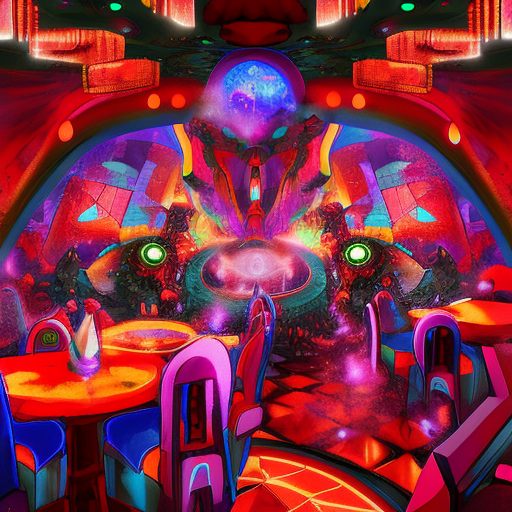One-line summary:
The Restaurant at the End of the Universe takes readers on a hilarious and mind-bending journey through time and space as the characters encounter absurd situations and ponder the meaning of life.
The Hitchhiker’s Guide to the Galaxy: A Brief Recap
Before diving into The Restaurant at the End of the Universe, it’s important to have a brief recap of the first book in the series, The Hitchhiker’s Guide to the Galaxy. Arthur Dent, an ordinary human, is whisked away from Earth just moments before its destruction to make way for a hyperspace bypass. Alongside his alien friend Ford Prefect, he embarks on a series of intergalactic adventures, encountering eccentric characters and unraveling the mysteries of the universe. Armed with the titular guidebook, which provides humorous and often unhelpful advice, Arthur navigates the absurdity of his new reality.
The Journey Continues: The Restaurant at the End of the Universe
In The Restaurant at the End of the Universe, author Douglas Adams continues the cosmic escapades of Arthur Dent and his eclectic group of companions. The story picks up where the previous book left off, with Arthur and his friends escaping the destruction of Earth on the stolen spaceship, Heart of Gold. As they travel through space, they find themselves in increasingly bizarre situations, all while grappling with the ultimate question of life, the universe, and everything.
Time Travel and Absurd Adventures
One of the central themes in The Restaurant at the End of the Universe is time travel. The characters find themselves hopping through different time periods, encountering historical figures such as Zaphod Beeblebrox’s great-grandfather and a resurrected Marvin the Paranoid Android. These time-traveling escapades provide ample opportunities for Adams to inject his trademark humor and satirical commentary on various aspects of human society.
Another recurring element in the book is the absurdity of the universe. From the titular restaurant that allows patrons to witness the end of time while enjoying a meal, to the existence of a planet populated by sentient mattresses, Adams delights in creating outlandish scenarios that challenge conventional thinking and invite readers to question the nature of reality itself.
The Meaning of Life and Existential Musings
Amidst the chaos and humor, The Restaurant at the End of the Universe also delves into deeper philosophical questions. The characters ponder the meaning of life, the existence of a higher power, and the nature of free will. Adams cleverly weaves these existential musings into the narrative, prompting readers to reflect on their own place in the vastness of the universe.
Key Takeaways:
- The Restaurant at the End of the Universe continues the hilarious and thought-provoking journey started in The Hitchhiker’s Guide to the Galaxy.
- Time travel and absurd adventures provide ample opportunities for humor and social commentary.
- The book explores existential questions about the meaning of life and the nature of reality.
“The story so far: In the beginning, the universe was created. This has made a lot of people very angry and been widely regarded as a bad move.”
– Douglas Adams
In The Restaurant at the End of the Universe, Douglas Adams takes readers on a wild and entertaining ride through time and space. With its blend of humor, satire, and philosophical musings, the book invites readers to ponder the absurdities of existence while laughing along the way. So grab your towel, consult your trusty guidebook, and prepare for a mind-bending adventure that will leave you questioning the meaning of it all.












